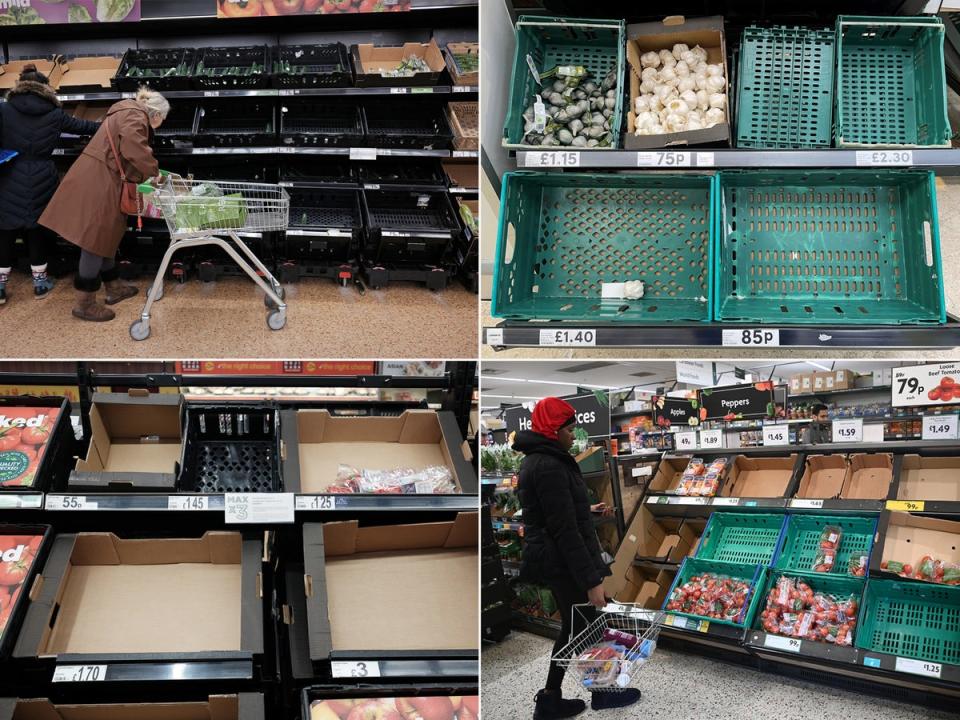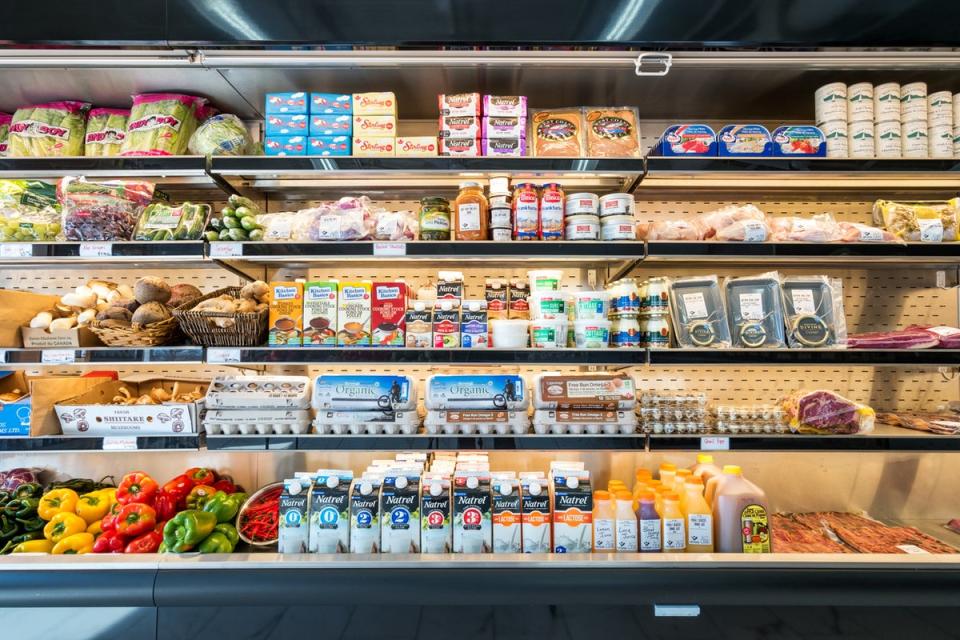Specialty meats such as Parma ham and Spanish chorizo sausage could start disappearing from supermarket and delicatessen shelves in the UK due to costly new Brexit checks, food industry chiefs have said Independent.
Rishi Sunak’s government has been warned of major supply problems for EU meat and dairy products due to extra bureaucratic processes and checks on imports from April.
Suppliers of some specialty products such as French cheeses, Italian hams and Spanish chorizo sausage will be turning away from the UK due to the extra expense and “major hassle” of shipping goods, industry bosses say.
Food industry leaders are also warning of supply issues, including price increases and potential shortages of fruit and vegetables, when more controls on fresh produce come into force later in the year.
It comes after alarm was raised over damage to imports of plants and flowers, with farming chiefs saying the new controls pose an “existential threat” to Britain’s horticultural firms.
Mr Sunak has been called for a new deal on food and farming standards with Brussels to avoid a “major step back” in Britain’s supply chains.

High-cost new health certificates will be required from January 31 for imports of medium-risk food, animals and plants, including meat and dairy products. And a brand new system for physical checks of these goods at the UK border will come into force on April 30.
The Cold Chain Federation, which represents British firms importing chilled and frozen food, says it will cost EU suppliers hundreds of pounds to have their products examined by veterinary experts before being sent across the Channel.
“If you’re a small exporter (supplier of meats such as Parma ham, salami or chorizo) the extra cost per shipment is likely to be hundreds of pounds,” said Tom Southall, the group’s managing director.
“There is a risk that some EU companies may decide not to bother [with the UK] “Because they don’t want to bear extra costs,” he added. “So the UK consumer may not have as many options in the future.”
The British Meat Processors Association (BMPA) also warns that the range of specialty products on shelves in the UK could run out following physical checks starting in April.


The BMPA has warned that delicatessens, food markets and restaurants will struggle to stock the same range of artisanal products as British importers’ trade links with smaller European suppliers dry up.
“The biggest fear is that smaller EU firms will find it all too complicated and costly,” said Peter Hardwick, trade policy adviser at the BMPA. “This is very, very concerning.”
The industry chief also warned that prices will rise on major meat products, including Irish beef, French lamb and bacon and ham imported from Denmark, Germany and the Netherlands, due to a wave of Brexit red tape in 2024.
Mr Hardwick added: “This is the impact of Brexit. “The new controls are a major step backwards from the way supply chains must work between close neighbours.”
From next week EU firms will need to pay for a new check – a veterinary health certificate – in their home country, as well as fill out paperwork online to let them know the goodness is coming to the UK.
There will also be costs to getting through inspection checks at the UK border from April; However, the government has not yet clarified the exact fees.


The Fresh Produce Consortium (FPC) said some EU firms had to be prepared for extra costs of up to £2,000 per truck if they put different types of food items on the same truck.
The FPC is also angry that the government this week decided to impose new costs on meat and dairy products, as well as fruit and vegetables, by classifying them as “medium risk”.
Starting in October, regular physical inspections will be applied to vegetables such as tomatoes, sweet potatoes and carrots, as well as apples, strawberries, peaches, plums, pears, blueberries and grapes.
FPC chief executive Nigel Jenney said it was a “heavy blow to the industry”, adding: “We are talking about significant additional costs. And these increased costs will ultimately be passed on to consumers.”
He also warned that smaller European food firms would give up on the UK. “Some may decide not to do this [export to Britain]. If I were a European exporter, I would ask, ‘Is it really worth all this trouble?’ “I should have thought.”
Mr Jenny added: “You may see less choice on the shelves in terms of deli meats and specialty cheeses, but from a cost perspective it affects everyone in the food industry.”


The warnings came after severe shortages of tomatoes, peppers and other salad vegetables forced supermarkets in Britain to introduce rationing last year; Photos of empty shelves became a laughing stock for people living in Europe.
Andrea Rasca, founder of Mercato Metropolitano food markets in London, said he was most concerned that the new controls would affect the supply of specialty products. He warned that problems experienced by fresh fruit and vegetable producers “could negatively impact food prices and the variety of food available”.
He added: “The food and hospitality sectors are currently struggling due to Brexit and the cost of living crisis and the government needs to do more to support them.”


The massive post-Brexit wave of border controls on imports was supposed to begin in 2023. But Mr Sunak’s government has delayed implementation until 2024 amid fears the burden could fuel food inflation during a cost-of-living crisis.
Mr Sunak rejected calls from food industry executives for a new deal with the EU to cut red tape. Sir Keir Starmer has promised that his Labor government will sign a new veterinary agreement with Brussels to harmonize some safety standards in a bid to ease trade frictions.
British flower importers and growers who depend on young plants from the EU, such as soft fruits such as strawberries and raspberries, look set to be hit by the disruption. The National Farmers Union has warned that this could hinder next year’s crop and even put some firms at risk of collapse.
Earlier this month, the Dutch Floricultural Products Wholesalers Association said the checks should be delayed again until 2025; This has warned that there could be problems supplying flowers to the UK for Valentine’s Day and Easter.
A government spokesman said they were determined to “deliver the world’s most advanced border” after Brexit.
They said: “The controls introduced by the new model play a vital role in keeping the UK safe and protecting our food supply chains and farming sector from harmful disease outbreaks.”
They added: “We are taking a phased approach, including the temporary relocation of all medium-risk goods, such as fruit and vegetables, from the EU to lower-risk goods to ensure businesses are not faced with unnecessary burdens. We will be working closely with UK businesses as controls are implemented.” we will continue.”